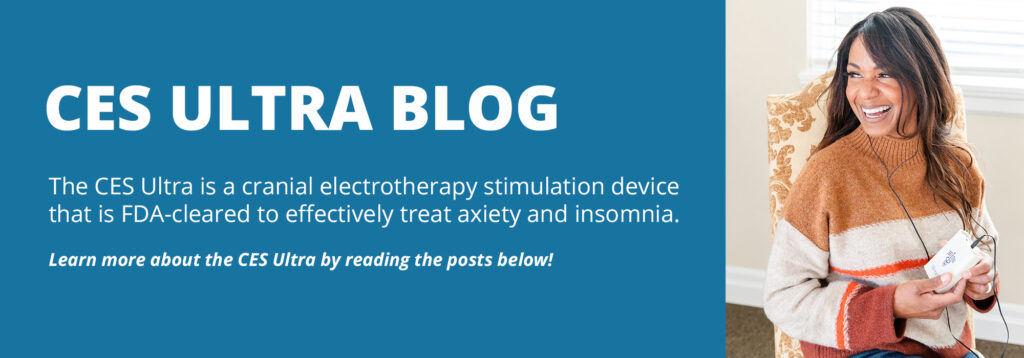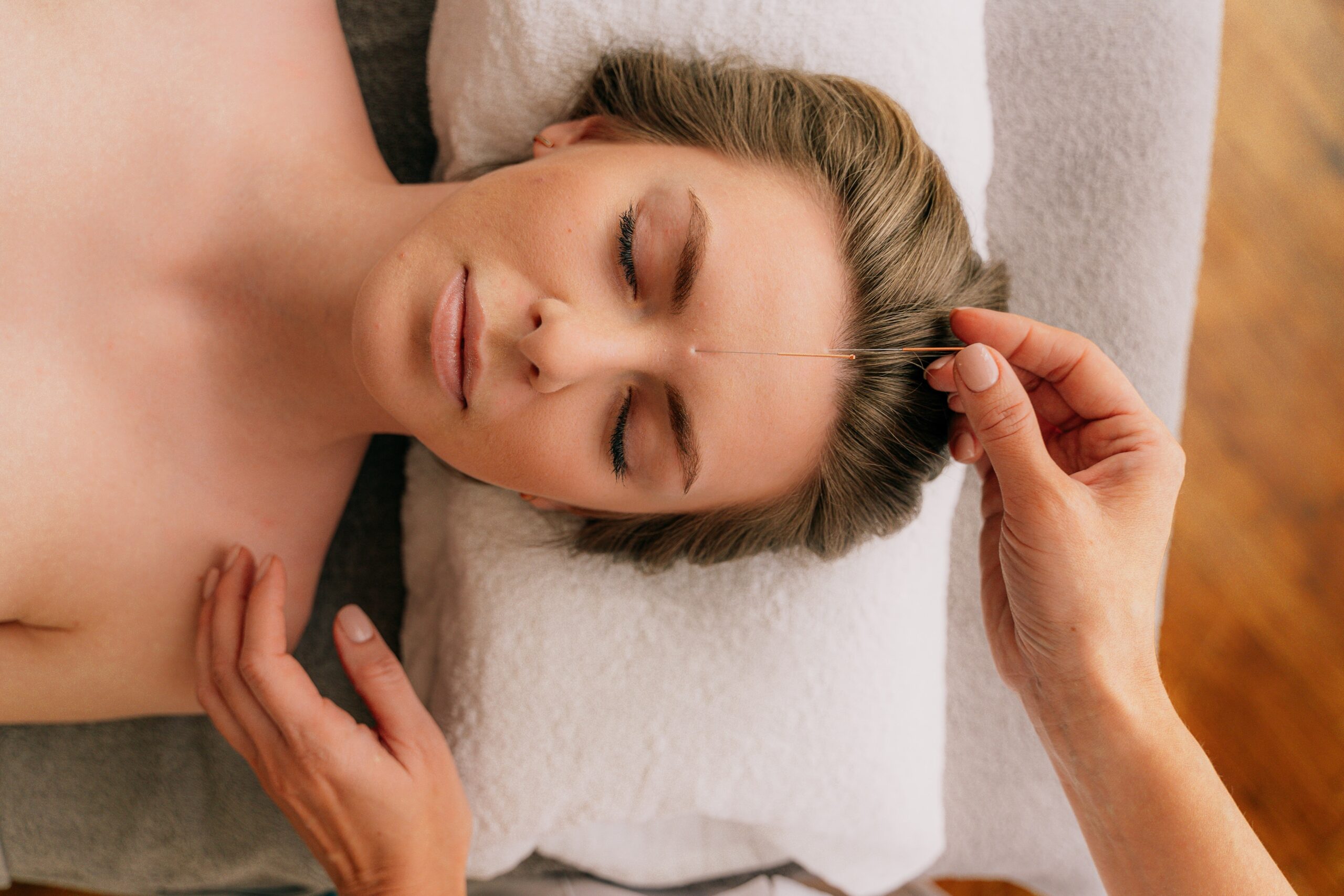If you suffer from depression, anxiety, or insomnia, it’s important that you seek the proper treatment. One of the popular treatment options is acupuncture. It is a holistic method that has been found to be effective in treating a variety of conditions. Acupuncture integrates the mind and body functions in an effort to naturally and effectively treat health conditions.
Many will attest that acupuncture is a much safer and more effective means of treating insomnia, depression, or anxiety compared to prescription medications for depression and anxiety.
Acupuncture has been found to be effective as a mood enhancer. But like any other forms of treatment, patients need to be informed as to what acupuncture is before they start using this treatment method.
Patients should be aware that acupuncture makes use of fine needles, which are inserted in specific parts of the body to bring about relief from aches and pains, as well as diseases.
What acupuncture does is bring back the balance of life energy, referred to as “Chi”. When a person’s “Chi” is balanced, there is spiritual, emotional, and physical balance.
If you decide to go with acupuncture as a treatment method for your insomnia, depression, or anxiety, know that there are a variety of techniques used. Some of these techniques may or may not involve needles.
Acupuncture is an effective treatment for migraines and headaches. These two conditions are often triggered by poor blood circulation. How can acupuncture help? Acupuncture can restore proper blood circulation. As a result, the headaches and migraines disappear, you are able to concentrate better, and you have a more positive outlook overall.
If you are suffering from insomnia, you have trouble sleeping and this can disrupt your day-to-day life, and even lead to anxiety and depression. Acupuncture can help by sending complex signals to your brain, enabling you to relax and get sleep.
Aside from insomnia, anxiety and depression are health conditions that can be the causes of a variety of physical and mental ailments. Many have found acupuncture to be effective in addressing these two conditions. To treat anxiety and depression with acupuncture, fine needles are inserted into the ear cartilage, fingertips, and other meridian points. The goal of sticking needles in various meridian points is to unblock the energy flow and restore “Chi”. When energy can freely flow back into the body, it is said to cure anxiety and depression almost immediately.
Alternative Medicine For Sleep Disorders and Insomnia
Even though millions of people have sleeping problems only a fraction of those people have medical conditions that cause sleeplessness. How do you know if your problem is perhaps just mild insomnia? If is it hard for you to fall asleep or stay asleep though the night, or if you wake up feeling tired or sleepy during the day, you might have a sleep disorder or mild insomnia.
Since most medical treatments for sleep disorders are only for people that have been diagnosed with a serious sleeping disorder most people that have sleeping problems turn to alternative medicine for treatment of their sleeping problems instead of opting for sleeping pills. They opt for something else because sleeping pills can be addictive, so most people prefer alternatives first.
Alternative medicine is used by lots of people and has been proven effective at treating certain conditions like poor sleep and insomnia. There are alternative medical treatments like massage or acupuncture that can be used or there are alternative practices like meditation, yoga and stress management that also have been proven to help people sleep better.
Meditation is recommended the most often by doctors as a way for people to relax and to get rid of some of the stress in their lives that can cause insomnia or other sleeping problems. Meditation is a skill that needs to be learned but the more you practice meditation the easier it will become. Reduced stress and better sleep are just some of the benefits that meditation has. It will also help you think more clearly and have more energy. If you want to start learning how to meditate there are lots of books and other tools you can use to get started.
Acupuncture, an ancient Chinese art that is used for everything from getting people to stop smoking to curing illnesses is often recommended for insomnia but the scientific jury is still out on whether or not acupuncture is an alternative medicine that will really help insomnia. Even though there is not enough conclusive evidence of a direct link between acupuncture and insomnia relief most experts agree that there is some evidence that acupuncture can be an effective insomnia treatment.
If you want to try acupuncture or another alternative medicine to try and treat your insomnia, check with your insurance company because some of the alternative medical treatments may be covered. Many insurance companies now offer coverage for preventive care and alternative treatments that might lessen the need for extensive medical care later on.
Acupuncture For Chronic Pain
Millions of people suffer from back pain, and it’s one of the leading medical conditions for which people seek treatment. But anyone undergoing chronic lumbar issues can tell you how difficult it is to find relief from the problem. Often, medical science is unable to offer anything that can truly cure it. New sleeping positions can be uncomfortable, stretching is time consuming and not always effective, and painkillers are a poor long-term solution and frequently don’t work.
Many people find that acupuncture alleviates or even eliminates their lumbar related symptoms. Acupuncture dates back to ancient China, and is used to treat a myriad of medical conditions. During acupuncture, the practitioner inserts and manipulates a number of small thin needles into the patient’s body. Some patients suffering from chronic back pain that was otherwise incurable have found great success with acupuncture. The medical community recognizes the benefits this method provides to back pain patients.
Acupuncture is particularly helpful for those suffering from sciatica pain. Sciatica is pain in the lower extremity (back, glutes and legs) resulting from irritation of the sciatic nerve. The pain of sciatica is typically felt from the low back (lumbar area) to behind the thigh and radiating down below the knee. Sciatic pain can be relieved with acupuncture therapy.
Acupuncture, which strengthens connective tissue and facilitates muscular relaxation, is utilized to strategically treat the deeper muscles of the lower extremity as well as the tendinomuscular aspects of the spine. It can put an end to the vicious cycle of spasms and pain experienced by many patients.
Many patients with old sports injuries, especially golf, find acupuncture especially helpful to relieve shoulder pain. Tension and muscle pain in the shoulders are very common, especially for people who work in an office. Sedentary careers that require long periods of time typing in front of a computer causes a lack of circulation in muscle tissue and muscle fatigue. Shoulder pain can also be attributed to injuries and strains, and these issues can also effectively be treated with acupuncture therapy.
Side effects of shoulder pain and muscle tension can include headaches, lack of concentration, poor memory, insomnia or irritability. With the help of acupuncture therapy, the pain and these uncomfortable side effects can be effectively treated so you can go back to living an active and fulfilling lifestyle.
Working Treatments for Insomnia
Insomnia is a terrible diseases that sapped the energy from you at the start of a fresh day after a sleepless night. Here, we compiled a list of working treatments for insomnia, for people worldwide, to bring you sleep relief and to zap the sleeping monster away.
Sleep hygiene is one important criteria which when met, can greatly increase the chances of you snoozing away throughout the night.
If you are wondering what sleep hygiene is, it is the sleeping habit of a person. This includes how a person sleep, when a person sleep, the activities a person does before sleeping and even the environment of where a person sleep.
By meeting the criteria listed below, good sleeping hygiene, by itself, is a test-and-proven working methods for insomnia.
Clear your mind – this certainly helps in preparing your body to sleep. By not worrying, brain activities start to reduce hence allowing the body to relax and sleep. From
Take a warm bath before sleeping – this relaxes the body muscle, giving the signal that it is time to rest.
Creating a good sleeping environment – the environment should be dark and temperature should be cool but not cold enough for the need of sleeping with 2 blankets. The bedding should be comfortable for you to sleep on. Uncomfortable bedding will often cause your body to adjust itself to get a comfortable sleeping position.
Choose the necessary mood for sleeping – For some people, listening to light soothing music get them to doze off easily. However for some, they prefer absolute dead silent environment, decide which group you belong to and adjust accordingly.
Create a routine – Having a routine lets the body know that you are preparing for sleep. For instance, if your habit is to read a few minute of book at 9:45, a warm bath at 10:00 and lying in bed at 10:15 and doze off by 10:30 and you keep this routine for 2 weeks. Naturally you will start to yawn almost every time you have your pre-sleeping bath since the body is used to the sleeping cycle.
Avoid caffeine and alcohol after late evening – Caffeine keeps you awake by disturbing your brain to prevent you from falling asleep. Avoid alcohol as they might cause you to wake up in the middle of the night
Do regular exercises – This keeps the body healthy as well as physically tired in order for you to rest well. However, avoid overexercising as this might cause you to muscle pain or ache which prevents you from falling asleep easily.
Do not exercise 4-5 hours before hitting the bed to allow the body to have the time to cool down.
Avoid taking long naps – Taking long naps interferes with the body’s ability to sleep at night. If you need to, take short naps of 15-30 minutes to prevent yourself from falling into the deeper stages of sleep.
Sleep hygiene is one of the best methods for treatments of insomnia when implemented properly and best of all, it is free!
Below, we will be discussing other treatments for insomnia, which includes taking medications. And the methods listed here required money for treatment, mainly for the purchase of medications.
There are several possible medical solutions for insomnia. When combine with sleeping hygiene, they are one of the best working combos in bringing sleep relief.
Melatonin – This is a chemical that is released by the pineal gland which is located at the brain. This is produced during the dark hours after the sunset has set. Hence, during daytime, Melatonin’s level is low, while after sunset, it slowly increases to regulate your waking and sleeping hours. Which is why having a sleeping routine is extremely important to prevent mismatching levels of Melatonin’s levels. Production level of Melatonin falls as we age.
Rozerem – This is a drug which stimulates the release of Melatonin. Usually people taking Rozerem are those who had irregular sleeping hours, such as night shift workers, to regulate back their sleeping hours after working shifts.
Acupuncture For Insomnia – It is proven to work for most people as an alternate natural way of sleeping by stimulating several points of the body to provide the signal to rest.
Consuming Herbs for Insomnia – Consume natural herbs such as Kava and passion fruits to assist you in getting to sleep. By drinking them 1 hour before sleeping time, your chances to sleep are much higher.
Sedatives – This drugs are taken by some to treat their sleep deprivation problems, however, the results have been subjective. Some of the known sedatives are Ambien, Dalmane and Halcion.

